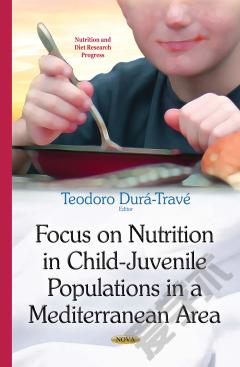Focus on Nutrition in Child-Juvenile Populations in a Mediterranean Area
Dietary habits have always been a social and cultural referent of different societies. However, scientific evidence in the past years associating diet and health conditions have been essential in order to consider dietary habits of a concrete population as a social and sanitary indicator. The nutritional habits traditionally observed in some countries of the Mediterranean area have created the concept of a Mediterranean diet which is considered as a prototype of a healthy diet. The modernization of society implies sociological and cultural changes that affect feeding preferences and habits. Society has accepted an occidental dietary pattern characterized by an excessive intake of food of animal origin, especially meat and derivatives, and added sugars, at the expense of the intake of cereals, vegetables and fruits. This fact is leading to an increase of saturated fat and cholesterol in diets. This virtual deterioration of dietary patterns in our social and cultural environment has led to fears for the gradual disappearance of the Mediterranean diet and would justify, to a great extent, the study of the quality of dietary habits in those sectors of the population more susceptible of being influenced, such as a childhood-juvenile population. The aim of this book is to evaluate the dietary patterns in a child-juvenile population of a Mediterranean Area (an undergraduate population has also been included), as well as to analyze the adequacy of energy and nutrient intake in these populations to the established nutrition requirements in order to design nutrition intervention strategies.
{{comment.content}}








 京公网安备 11010802027623号
京公网安备 11010802027623号